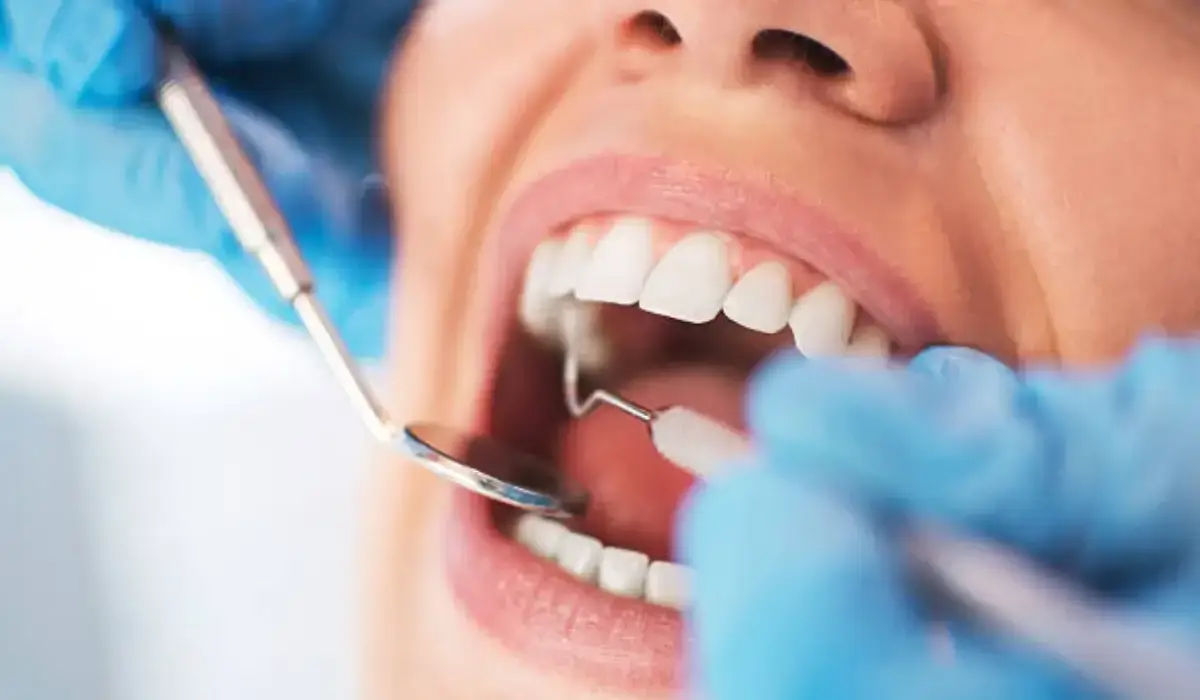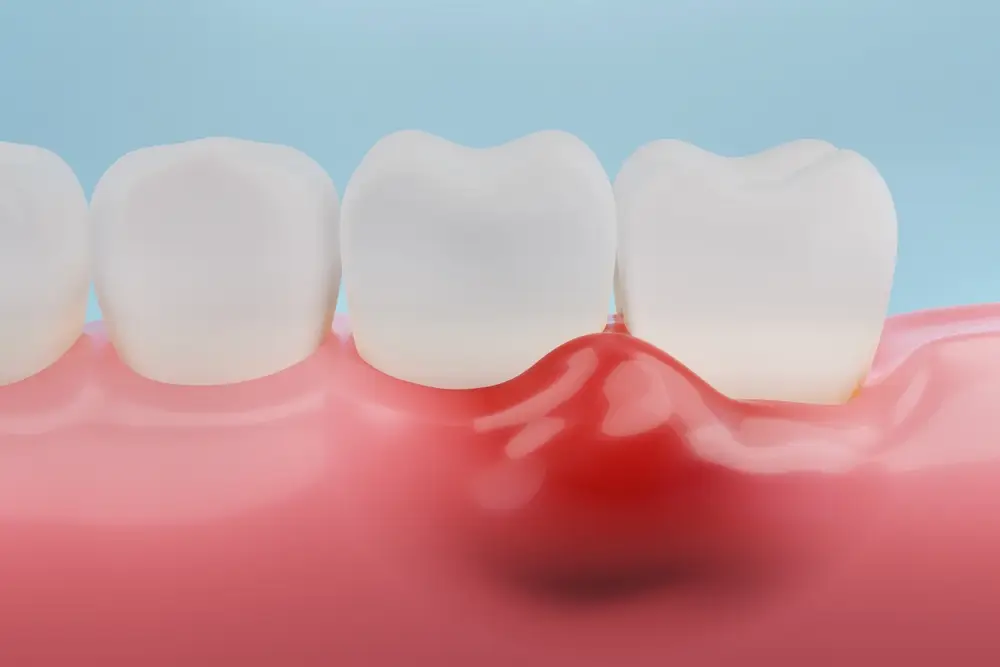
Did you know that people with gum disease are nearly twice as likely to develop heart disease? Research continues to uncover the surprising ways oral health impacts overall well-being, and one of the most critical connections is between gum disease and heart health. While brushing and flossing keeps your smile bright, they may also be protecting your heart.
Here at Schaumburg Dentistry, we go beyond just treating teeth. Our general dentistry in Schaumburg focuses on preventive care, helping patients reduce the risks linked to both oral and heart-related conditions. But how exactly are oral bacteria and heart conditions connected? Let’s explore the science behind this link and how small daily habits can safeguard your long-term health.
Gum disease, or periodontal disease, begins when plaque—a sticky, bacteria-filled film—accumulates on your teeth. Without proper dental hygiene like daily brushing and flossing, plaque hardens into tartar, irritating the gums and leading to gingivitis, the first step in the connection between oral health and heart disease.
If left untreated, gingivitis can develop into periodontitis, where the gums pull away from the teeth, forming pockets that trap bacteria. Over time, this can damage the supporting bone, cause tooth loss, and increase body-wide health risks like heart disease.
Common risk factors for periodontal disease include poor brushing and flossing, smoking, and high-sugar diets. Improving what Invisalign does to your oral health by straightening teeth can make cleaning easier, reducing these risks. The good news is that regular dental checkups can catch early signs of gum disease.

The connection between oral health and heart disease is driven by bacteria and inflammation. As gum disease worsens, bacteria from mouth infections and heart risks become closely linked, as these bacteria can enter the bloodstream through inflamed gum tissue, potentially traveling to the heart and increasing the risk of heart-related problems.
Chronic inflammation plays a key role, with studies linking it to atherosclerosis—the hardening and narrowing of arteries. Patients with poor periodontal health face a higher risk of blood clots, which can lead to heart attacks or strokes. In severe cases, understanding tooth extractions becomes crucial, as removing infected teeth may help prevent further health complications.
Don’t wait for symptoms! Schedule your appointment today and protect your health from hidden risks.
The overlap of risk factors between heart disease and dental health highlights the importance of lifestyle changes and preventive care. Several key risk factors contribute to the development of both conditions:
Smoking is one of the most significant contributors to both periodontal disease and heart-related issues. It damages gum tissue, slows healing, and promotes plaque buildup in arteries, increasing the risk of blockages and body-wide complications. Quitting smoking is essential to reducing long-term risks for both conditions.
Diabetes is another major risk factor that directly affects both your periodontal health and heart health. High blood sugar can worsen gum infections, slow healing, and contribute to body-wide inflammation, which elevates the periodontal health impact on the heart and increases the likelihood of heart-related complications. Proper diabetes management is essential to reducing these risks.
A poor diet, especially one high in sugar and processed foods, can fuel plaque buildup on teeth and cause widespread inflammation throughout the body. Sugary foods promote the growth of bacteria that cause gum disease, while inflammation can contribute to atherosclerosis, the narrowing of arteries linked to heart attacks and strokes.
Neglecting dental hygiene by failing to brush and floss regularly allows harmful bacteria to thrive. This bacteria can cause mouth infections and heart risks by entering the bloodstream, potentially leading to body-wide inflammation and heart-related complications.
By addressing these shared risk factors, such as improving hygiene, managing chronic conditions, and adopting healthier habits, you can significantly reduce your chances of developing both gum disease and heart issues. Regular visits to general dentistry in Schaumburg for preventive care play a critical role in supporting long-term health.
Protect your health with preventive care. Contact us now at (847) 985-8100 and reduce the risk of gum-related heart complications!
Maintaining healthy habits is essential to reducing the risks associated with oral health and heart disease. By taking preventive steps and making consistent lifestyle improvements, you can protect both your smile and systemic heart health risks. Here’s what you can do to stay on track:
Routine dental exams play a key role in identifying early signs of periodontal disease before they escalate into more serious health issues. Your dentist can detect gum inflammation, plaque buildup, or bacterial infections that may lead to body-wide problems like heart disease. In advanced cases, if damage is severe, tooth extraction is necessary to prevent the spread of infection. Regular cleanings help remove harmful plaque and tartar, reducing the risk of long-term complications.
Daily flossing and proper brushing are critical to keeping your gums healthy and reducing the risk of mouth infections and heart risks. Flossing removes plaque and food particles trapped between teeth, while brushing twice daily helps eliminate surface bacteria. This reduces the spread of oral bacteria and heart conditions linked to gum disease. Consistency is key to long-term protection.
A healthy diet is essential for maintaining strong teeth and a healthy heart-related system. Eating fruits, vegetables, whole grains, and lean proteins supports both periodontal health and heart function, helping reduce the risks associated with periodontal disease and heart disease. Limiting sugary foods and drinks minimizes plaque buildup, lowering the chances of developing gum disease.
Uncontrolled diabetes, smoking, and high blood pressure can significantly increase the risks of oral health and heart disease. Poor dental hygiene and cardiovascular risk are closely linked, as these conditions promote body-wide inflammation and bacterial growth that can damage both your gums and heart. Quitting smoking is especially important, as it helps prevent gum disease progression and reduces arterial damage.
Our team provides personalized treatments and advice tailored to your needs. Through our regular general dentistry in Schaumburg, we help protect your overall well-being, ensuring a healthy mouth and a healthier heart.
The strong link between oral health and heart disease highlights the importance of prioritizing dental care. Addressing risk factors like smoking, poor oral hygiene, and untreated gum disease not only protects your teeth but also reduces your risk of heart-related issues. Simple daily habits and healthier lifestyle choices can make a lasting difference in your overall well-being.
Regular dental checkups are key to detecting early signs of problems before they escalate. Schaumburg Dentistry offers comprehensive care through general dentistry and family dentistry services to provide personalized care for every member of your family. We are committed to supporting your oral and overall health.
Call us at (847) 985-8100 or book your appointment online today. Check out our patient reviews and stay connected on Facebook, Instagram, and YouTube for tips on maintaining optimal oral health. Protect your heart by taking care of your smile!